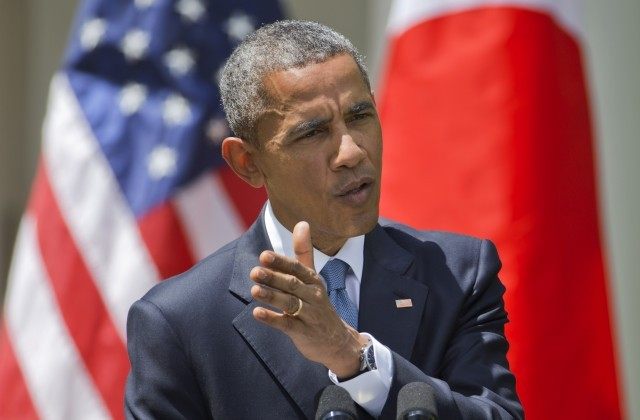A majority of Americans think trade restrictions are necessary to protect American jobs and oppose giving President Barack Obama fast-track authority to negotiate trade deals that Congress can approve or reject but not amend.
Establishment Republicans and Democrats are feverishly working to get Obama’s Trade Promotion Authority (TPA) through Congress, which would enable deals like the Trans-Pacific Partnership (TPP) to be fast-tracked.
When a CBS/New York Times poll asked whether respondents favored or opposed “giving the president authority to negotiate international trade deals that Congress can only approve or disapprove but not change,” 55% opposed while 42% favored. When asked if the TPP “would increase the number of jobs available in the United States, decrease the number of jobs available, or won’t make much of a difference,” 22% thought jobs would decrease compared to 16% that thought they would increase. Another 29% felt the deal would make no difference while another 33% said they did not know enough about it to answer.
Given that nearly every lawmaker has not even read the TPP deal, which is locked in a secret room in the Capitol, it should not be surprising that just 22% of Americans said they have either heard or read “a lot” or “some” about the agreement while 78% said they have either heard or read “not much” or “nothing at all.” Those who have heard or read about the deal were more likely to think that it would decrease jobs in the United States.
The poll also found that 63% of Americans believe “trade restrictions are necessary to protect domestic industries” compared to 30% that believe “free trade should be allowed, even if domestic industries are hurt by foreign competition.”
The Senate passed the TPA last month and Republicans like House Speaker John Boehner (R-OH) and Rep. Paul Ryan (R-WI) are trying to round up the votes to get it through the House this month. The deal has united the establishment wings of both parties against their grassroots wings. On the left, Senators like Elizabeth Warren (D-MA) and Bernie Sanders (I-VT), who is challenging Hillary Clinton in her party’s presidential primary, have railed against the deal. On the right, Sens. Jeff Sessions (R-AL) and Rand Paul (R-KY) voted against the TPA while nearly 40 conservative House Republicans–many of whom also opposed the “Gang of Eight” comprehensive amnesty bill–are reportedly set on voting against the agreement.
Sen. Jeff Sessions (R-AL), one of the few lawmakers on either side of the aisle who has read the deal, has warned that its “living agreement” will erode American sovereignty by creating a new international body that can alter the agreement with just a two-thirds vote. The “living agreement” could even allow U.S. immigration laws to be amended without the approval of Congress.
The TPP has been surrounded by secrecy and misdirections. For instance, President Barack Obama said this week that China may eventually join the TPP despite previous claims to the contrary by Obama and Ryan.
Sessions, as he has relentlessly done on amnesty, has stood up for American workers in opposing Obamatrade against the same cast of characters in the bipartisan permanent political class that favored massive comprehensive amnesty legislation, which would have lowered the wages of U.S. workers had it passed Congress and been signed into law.
“Any trade agreement we enter into should have a mutually beneficial economic impact on all parties to the agreement,” Sessions declared last month on the Senate floor. “It must not have the effect of continuing or furthering the decline of manufacturing in the United States. It should seek to end trade unfairness and to increase, not reduce, wages in the United States. We can no longer afford to lose a single job to an unfair trade deal. Not one.”
A strong majority of Americans agree with the Alabama Senator in the CBS/New York Times poll, which was conducted May 28-31 and has a margin of error of +/- 3 percentage points.

COMMENTS
Please let us know if you're having issues with commenting.